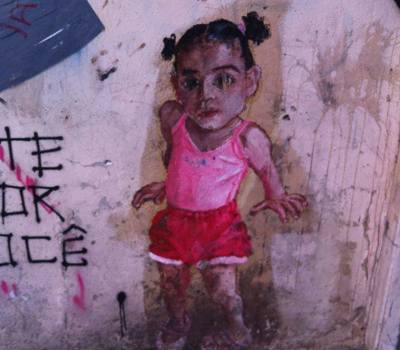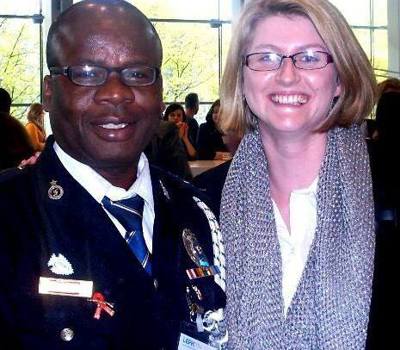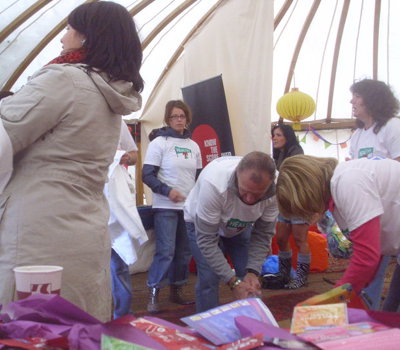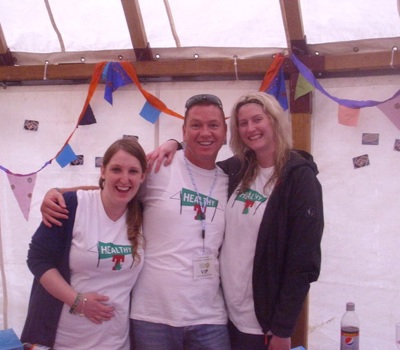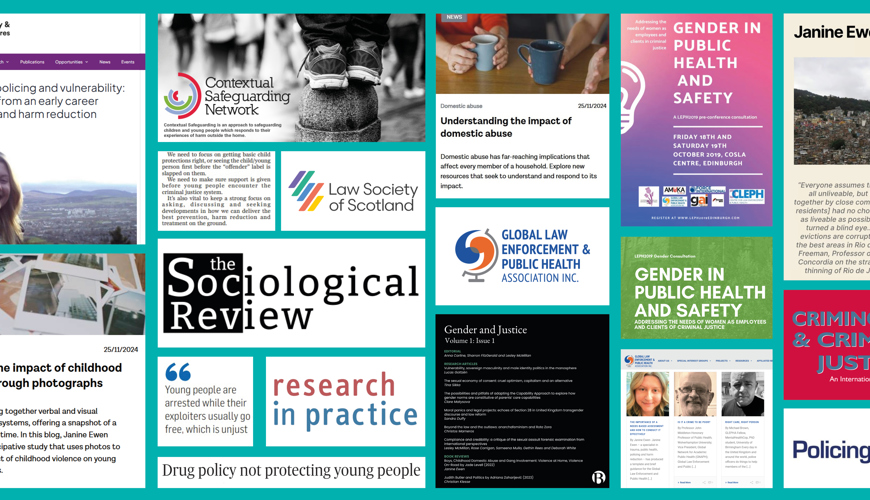The Troubles, favelas and festivals — Why solicitors need to rethink criminalisation to ‘build safer communities’
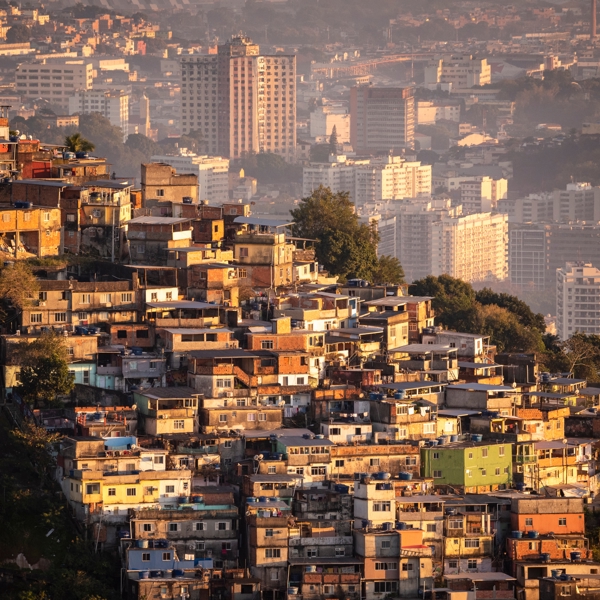
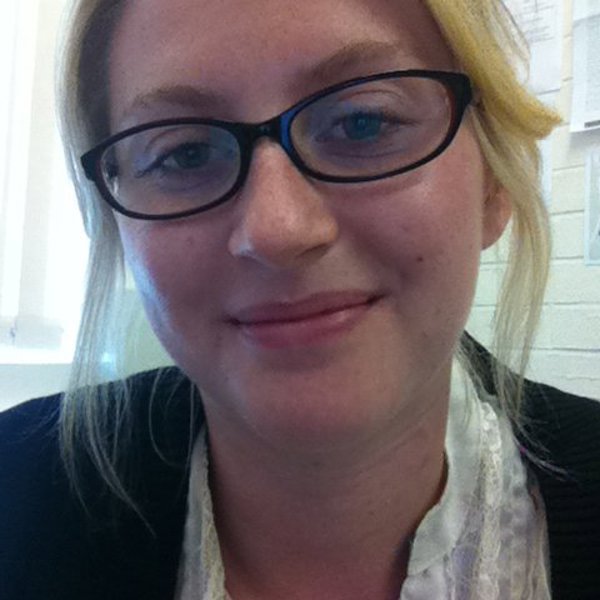
Every day, legal professionals strive for justice, fairness, reducing harm and improving their clients’ position. But do practitioners need to rethink what that means for communities?
The Journal has spoken to Janine Ewen, a prominent specialist in harm reduction and childhood trauma, about her experiences in the field and what lessons solicitors need to learn.
Ewen — who has led on cases involving exploitation and vulnerability as well as working with law enforcement agencies to improve practices — grew up in Northern Ireland and has spent time home and abroad including in Brazil’s favelas.
The Journal asked Ewen to share her insights for solicitors from a career spent trying to reduce harm and make communities safer.
You’ve worked everywhere from Scottish music festivals to Brazilian favelas, what connects all these settings in terms of your mission?
Having been raised in Northern Ireland during a particularly turbulent period, just before the Good Friday Agreement, I observed politicians coming to Belfast for peace talks. I directly experienced the widespread unrest that affected the surroundings. Although my community dealt with numerous challenges, it also had commendable aspects that deserve acknowledgment. My objective is to enhance circumstances whenever feasible.
Northern Ireland has played a crucial role in influencing my life and my work to improve difficult circumstances. For the last 20 years, my professional experiences have consistently focused on themes related to public health, trauma, safety, and harm reduction.
Much of your work focuses on people who don’t want to or don’t feel able to report crimes - what lessons can you share with others in the legal profession about how to build trust in such circumstances?
The most important takeaway is to recognise that individuals who don’t report crimes may have experienced disappointment repeatedly prior to your involvement. We know re-traumatisation isn’t a minor occurrence anymore, it’s a major problem. You might perceive yourself as accessible and genuinely dedicated to assisting others, possibly in a legal capacity, but it’s essential to remain humble and cautious in your approach.
We should refrain from presuming that individuals have not made efforts to assist themselves. When someone approaches you for help, it’s important to understand the context thoroughly before offering any recommendations. Keep it broad and open as much as possible, then people will feel comfortable, and the trust will evolve. Keep the approach as expansive and inclusive as possible; this will help individuals feel at ease, fostering a sense of trust over time.
Numerous individuals face criticism for failing to report crimes; however, possessing genuine empathy can significantly alter this perspective. We need to acknowledge the hesitance surrounding reporting, as there are often valid reasons that prevent everyone from acting. And this can be because of threats and violence. If you were in their position, would you truly claim you would respond differently?
If you cultivate the relationship, future circumstances or viewpoints may evolve for that individual, potentially leading to additional actions.
I recall being interviewed by a family lawyer in relation to my mother’s domestic abuse case against my father. I was struck by how comfortable he made me feel. He demonstrated a remarkable ability to communicate with me in a suitable manner.
Initially, he greeted me warmly and introduced himself, ensuring we sat in a comfortable area instead of at his desk—there were chairs and a table that created a more inviting atmosphere. I had brought along my bunny rabbit soft toy, who was my closest companion back then, and the lawyer took the time to ask about its name. He inquired about my life and whether I felt content in my current living situation. Understanding that posing challenging questions to an 8-year-old girl would not be appropriate, he focused on building conversation and trust first. Eventually, he mentioned that he needed to ask me questions regarding my father.
He asked, 'Was daddy ever unkind to mummy?’ This was a difficult question, yet it was posed with a certain gentleness. Throughout the interview, I felt at ease and had a fondness for him. Many of these initial experiences provided me with deeper insights into how to effectively support individuals who have faced trauma and abuse.
Take a multi-agency project like Healthy T, what makes collaboration work between health workers, police, and community services important and, crucially, workable?
Healthy T was undoubtedly one of the most effective harm reduction and safety initiatives I have participated in. My responsibilities included uniting sexual health and wellbeing recommendations, establishing safe environments for individuals to share any experiences of sexual violence, and conducting outreach activities.
All members of the multi-agency teams recognise that festivals come with significant risks. There will be alcohol and drugs present, and thousands of individuals will gather in close quarters, many of whom are unfamiliar with one another and have travelled from different regions to participate. It is inevitable that there will be instances of challenging and potentially hazardous behaviour. However, our aim was to emphasise health and enjoyment to the greatest extent, fostering an environment of support rather than punishment, which was a shared commitment among everyone involved.
The festival clearly drew a significantly larger crowd of young individuals, and our intention was for them to have a great time. Engaging in risk-taking is an inherent aspect of life and contributes to character building. Effective collaboration is achievable only when everyone is aligned in their efforts.
The immense scale of the event necessitated that everyone remained highly attentive, which resulted in a very close-knit collaborative effort. There was a shared respect among professionals and teams for the roles they fulfilled.
What did you learn from your time in Rio and how those lessons can be applied at home?
Brazil ranks among the most perilous nations globally. I have visited Rio de Janeiro and São Paulo three times, during which I engaged in a project focused on sports and education for youth who are either involved in or at risk of becoming involved in gang-related activities associated with drug trafficking in Rio.
Rio de Janeiro frequently encounters severe criticism owing to its elevated homicide rates and challenges related to drug trafficking. The media often exacerbates these issues, fostering a culture of sensationalism that capitalises on the distress resulting from crime. It is crucial to reflect on the consequences of our public communications. Beneath the headlines lie genuine problems and the lives of individuals, necessitating a respectful approach. There are numerous remarkable community members I have encountered, and it is essential to highlight their valuable contributions. Look up RioonWatch.
When engaging with communities, it is important to learn from them, listen to their voices, and provide them with the necessary resources and funding to empower their own initiatives. My involvement in community-based efforts focused on enhancing existing strengths rather than imposing external solutions. The mentality of saviourism is not an effective approach.
I acquired a deeper understanding of the complexities involved in the drug trade and the stark realities linked to gang participation. Many young people and their families recounted how police corruption perpetuates this trade, often forcing individuals to engage out of concern for their loved ones’ safety from possible dangers or violence. I recognised the significant obstacles created by the absence of secure environments.
Children and adolescents should be provided with access to quality community development initiatives for their protection, a principle that is applicable in Scotland and throughout the UK.
You’ve suggested police take a less punitive, more needs-based approach - what resistance have you faced, and how do you navigate those conversations?
I have encountered a range of experiences, including difficult discussions that occur privately. Engaging with law enforcement does not inherently indicate support for policing action; this is particularly true for individuals who have faced unjust treatment within the criminal justice system and possess valid concerns stemming from their traumatic encounters.
I have interacted with police officers who recognise that they cannot simply enforce their way through complex issues, as this often exacerbates problems. Conversely, some officers struggle to move beyond a mindset focused solely on apprehending individuals. Additionally, there have been instances where I needed to intervene to stop certain policing initiatives from being implemented because it was apparent that these efforts were framed as "welfare" while aiming to intensify control over communities.
It’s crucial to exercise caution and demonstrate the courage to speak out to avert potential harm. There are better practices today thanks to the growth of the policing and vulnerability field (vulnerability is both caused and mitigated through policing), but we still need to see the evidence and hear from those who will be most affected by such actions.
I have encountered instances in which law enforcement made assurances during conversations, but the actual circumstances outside do not align with those promises. This is especially disheartening when discussions have been extended. I try to refer to agendas, policies, and evidence while engaging in reasoned dialogue to persuade. I consistently take notes during meetings as it provides a reference for who made specific statements, who offered more support, and who did not. It is beneficial to maintain a close relationship with the more supportive officer, even following up via email to express gratitude for their involvement and positive contributions. They might be the individual who advocates for your perspective discreetly. Additionally, I try to engage with officers on a wider scale regarding their roles and viewpoints outside of formal meetings.
Not every police officer is in full agreement with criminal laws; however, they acknowledge the pressure that can arise from ideological beliefs and public campaigns, particularly on sensitive matters. It is also our duty to ensure that we are not placing them in vulnerable positions. Nevertheless, I have discovered that these discussions are especially beneficial for fostering strong relationships.
You’ve written about both the ‘expert’ and ’survivor’ self - how has acknowledging your own experiences shaped your career and work?
I experienced many setbacks beginning in my childhood and continuing through to my twenties. It was a combination of inadequate policing methods, failures in safeguarding, and the absence of early support during my development. I’ve been able to talk about various aspects of this, including my efforts to return to Northern Ireland (which I hope to pursue further). Given the gravity of the events that occurred, it prompted me to wonder who else might be undergoing similar experiences. I appreciate hearing from others and being in safe environments characterised by shared support and empathy, experiences largely shaped by my two-year stay at a women’s refuge.
I also came to understand the extent of information and experiences I absorbed during my youth, which contributed to my level of awareness and my capacity to engage with a diverse range of individuals. Social workers, lawyers, shelter staff, police, and others can be overwhelming to encounter when you are young. We need to engage with young individuals thoughtfully, as they will remember these interactions forever.
I believe it is feasible to utilise lived experiences effectively, which has always been my aim. It was never centred on myself (‘look at me, this is what WILL happen’); rather, I highlighted the potential outcomes stemming from X, Y, and Z. My intention was to inspire individuals to engage in critical thinking regarding various situations to grasp their complexities. I get personal satisfaction from documenting my experiences, especially when it serves a specific purpose for enhancing practices or campaigning for change. Additionally, this stems from my respect for my mother. She took initiative to ensure the safety of both me and my brother during times of major shortcomings, so by acknowledging this, it’s a way to continue to honour her efforts to safeguard us.
From these experiences, I recognise that I possess significant abilities in assisting individuals who are particularly vulnerable, including both children and adults. Throughout my life, I have consistently received praise for my capacity to make others feel valued (properly) and for alleviating feelings of isolation. This is one of the factors contributing to my fortunate experience in obtaining consultancy and advisory positions, which have allowed me to work internationally and improve my practical and technical skills in areas such as public health, safety, harm reduction, and trauma awareness.
I hope to be an example that it is feasible to have these types of experiences while also being impactful.
What are some misconceptions about harm reduction you want to challenge particularly among legal professionals?
For me, the concept of harm reduction applies widely across various domains concerning public safety. While it is often linked to substance use, I refer to 'harm reduction' in the context of community safety and the broader issues of violence, exploitation, and support services aimed at ensuring people's well-being.
However, concerning drugs, I recognise the necessity of creating environments that ensure safety for individuals. At the same time, it is crucial to maintain a balance that allows individuals the opportunity to overcome addiction. I believe a world can exist where we reduce harm for people, and that can involve implementing safer practices as well as offering abstinence.
I have never regarded harm reduction as an endorsement of drug use. What I have repeatedly noticed in this area is the numerous efforts to manage the challenging realities imposed by criminalisation. The challenges associated with criminalisation create uncertainty regarding the safety of available drugs, which may be adulterated or combined with harmful substances that can lead to severe health risks or fatalities. Therefore, it is essential to prioritise harm reduction by remaining vigilant to these developments.
If you advocate for harm reduction, it does not imply that you are an advocate for drug use.
If you would like to invite Janine as guest speaker or to talk about training in any of these areas, she can be contacted at: janine.ewen@gmail.com
Janine’s profiles and recent writings
Janine Ewen, Global Law Enforcement and Public Health Association
https://glepha.com/team/janine-ewen/
Working in policing and vulnerability: Insider tips from an early career researcher and harm reduction specialist
Meet Janine Ewen, expert child vulnerability and harm reduction speaker and trainer
Exploring the impact of childhood violence through photographs
Eliciting conversations with young people on safety, harm and place


